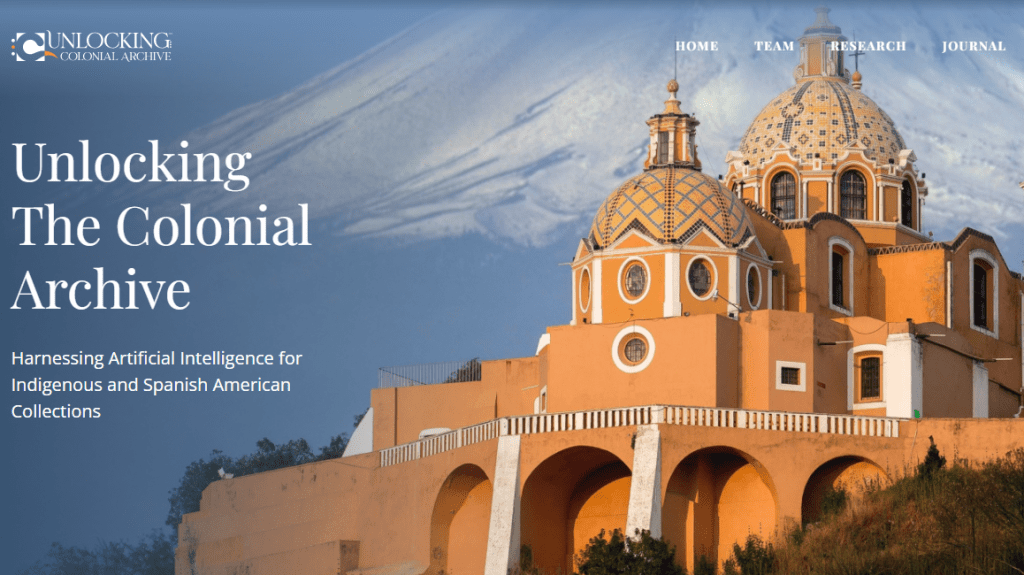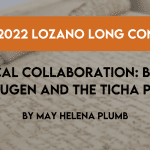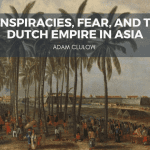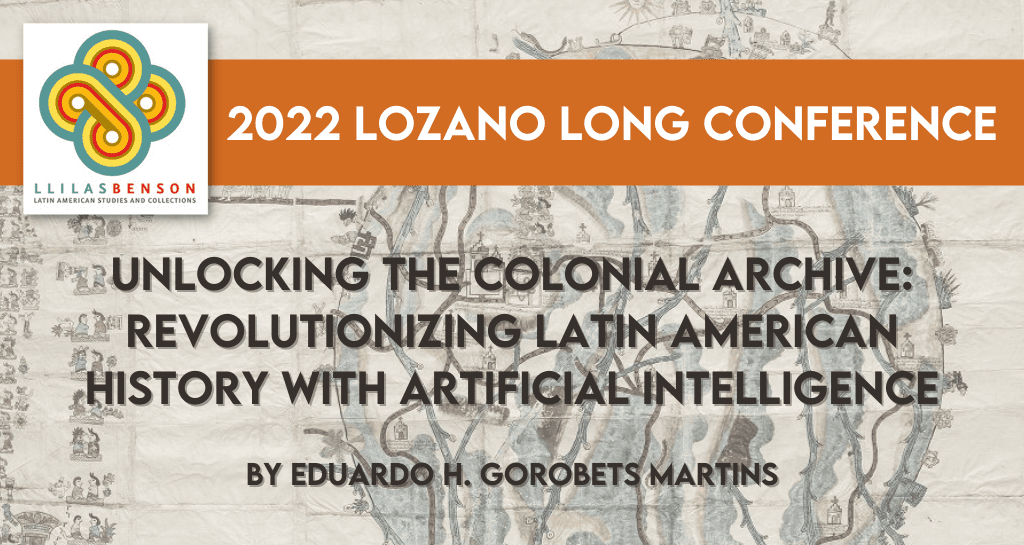
By Eduardo H. Gorobets Martins
In honor of the centennial of the Nettie Lee Benson Latin American Collection, the 2022 Lozano Long Conference focuses on archives with Latin American perspectives in order to better visualize the ethical and political implications of archival practices globally. The conference was held in February 2022 and the videos of all the presentation will be available soon. Thinking archivally in a time of COVID-19 has also given us an unexpected opportunity to re-imagine the international academic conference. This Not Even Past publication joins those by other graduate students at the University of Texas at Austin. The series as a whole is designed to engage with the work of individual speakers as well as to present valuable resources that will supplement the conference’s recorded presentations. This new conference model, which will make online resources freely and permanently available, seeks to reach audiences beyond conference attendees in the hopes of decolonizing and democratizing access to the production of knowledge. The conference recordings and connected articles can be found here.
En el marco del homenaje al centenario de la Nettie Lee Benson Latin American Collection, la Conferencia Lozano Long 2022 propició un espacio de reflexión sobre archivos latinoamericanos desde un pensamiento latinoamericano con el propósito de entender y conocer las contribuciones de la región a las prácticas archivísticas globales, así como las responsabilidades éticas y políticas que esto implica. Pensar en términos de archivística en tiempos de COVID-19 también nos brindó la imprevista oportunidad de re-imaginar la forma en la que se llevan a cabo conferencias académicas internacionales. Como parte de esta propuesta, esta publicación de Not Even Past se junta a las otras de la serie escritas por estudiantes de posgrado en la Universidad de Texas en Austin. En ellas los estudiantes resaltan el trabajo de las y los panelistas invitados a la conferencia con el objetivo de socializar el material y así descolonizar y democratizar el acceso a la producción de conocimiento. La conferencia tuvo lugar en febrero de 2022 pero todas las presentaciones, así como las grabaciones de los paneles están archivados en YouTube de forma permanente y pronto estarán disponibles las traducciones al inglés y español respectivamente. Las grabaciones de la conferencia y los artículos relacionados se pueden encontrar aquí.
Research about New Spain has relied on deciphering Spanish and Indigenous handwritten records and imagery. Although many documents produced during colonial times have been digitized in the last few decades, most of their contents remain inaccessible for Latin Americanist scholars. That is because several documents, although digitized, have yet to be transcribed, translated, or, in the case of images, contextualized in space. The interdisciplinary project Unlocking the Colonial Archive, which emerged in response to this challenge, is an initiative that uses Artificial Intelligence (AI) technologies to transcribe and analyze data from some digitized collections of colonial Spanish America, particularly from New Spain. This project’s leading question has been: how do we make these archives more accessible for research?
In this article, I provide a short overview of the Unlocking the Colonial Archive project with the help of Professor Patricia Murrieta-Flores (Lancaster University). The project brings together the expertise of Professors Kelly McDonough (Spanish and Portuguese, UT Austin), Albert Palacios (LLILAS Benson, UT Austin), Javier Pereda Campillo (Art and Design, Liverpool John Moores University), and Patricia Murrieta-Flores (History, Lancaster University). Also, several historians, archaeologists, designers, librarians, computer scientists, and students participate as collaborators, coming from different universities and institutions, primarily from Mexico, Portugal, and Spain. Unlocking the Colonial Archive counts on the collaboration of the partner projects Taglog (Poland), Transkribus (Austria), and LucentiaLab (Spain).
This extensive team is currently working with four digital collections: the digitized LLILAS Benson manuscripts; the Fondo Real de Cholula; the multi-institutional effort on book digitization Primeros Libros de las Américas; and the UNESCO-AGN MAPILU collection from the National Archive of Mexico.
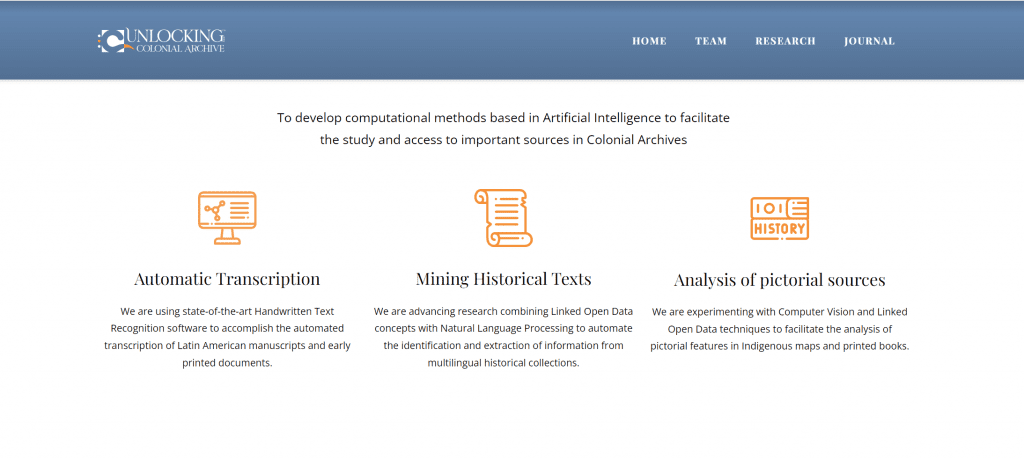
The Unlocking the Colonial Archive project has focused on a series of key archives. First, the digitized LLILAS Benson collection encompasses over 275 records in four collections spanning the sixteenth and seventeenth centuries. These sources include genealogical and census data on early colonizers of New Spain (1529-1550), manuscript Nahuatl histories and doctrinal materials, correspondence, books of professions for religious orders (including the Sor Juana Inés de la Cruz’s religious vow to her order), and most notably, 168 textual reports and 78 maps of the Relaciones Geográficas. Second, the Fondo Real de Cholula archive hosts 151 governmental and judicial documents totaling more than 17,000 pages about Indigenous, Spanish, Black, Mestizo, and Creole peoples of this “Indian City.” Third, the collection Primeros Libros de las Américas comprises 110 of the 135 known first books printed in the Americas between 1543 and 1600, including administrative, religious, and linguistic materials in several Indigenous languages, such as Huastec, Mixtec, Nahuatl, Otomí, Purépecha, and Zapotec. Finally, the MAPILU Collection contains 334 Indigenous maps that complement but differ from the Relaciones Geográficas collection. This wide array of documents will be available in the next few years via the Unlocking the Colonial Archive website under Creative Commons Public License with complementary gold-standard datasets, annotations, and different file formats.
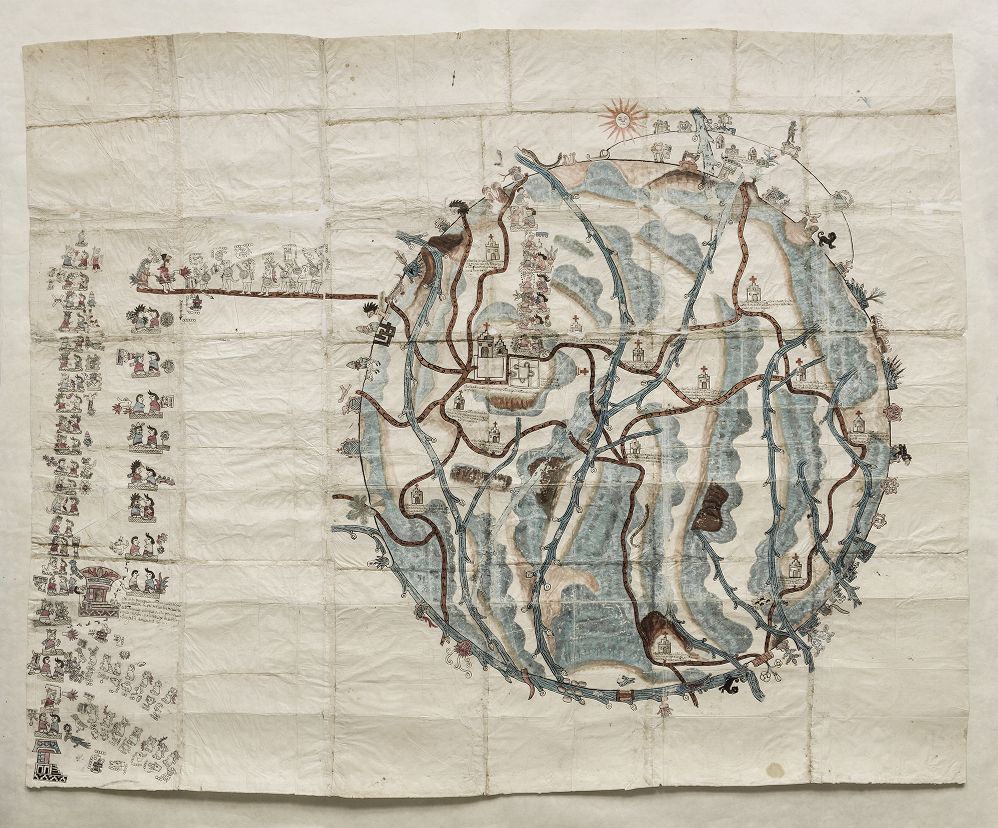
Different AI technologies are used by Unlocking the Colonial Archive through three research areas. First, they apply Handwritten Text Recognition (HTR) to transcribe manuscripts and printed works in Spanish or Indigenous languages from the 16th and 17th centuries. With the help of the digital platform Transkribus, the team can extract textual contents based on pre-trained models and previous transcriptions. Second, they “mine” Historical Texts with Linked Open Data (LOD), Natural Language Processing (NLP), and Machine Learning. These methods allow the automatic identification of semantic concepts and keywords in documents of multiple collections, as well as their patterns and relationships using Taglog, a platform for Natural Language Processing. Moreover, Unlocking the Colonial Archive is creating a guide that explains the technological framework and methods of analysis, which will help others replicate this analysis in the future. And third, they seek to understand the pictorial elements of colonial maps and printed books (visual culture) with Linked Open Data and Computer Vision (a technique that enables computers to derive meaningful information from digital images). By using the LucentiaLab platform, the team can identify and classify logographs, glosses, people, genealogies, architecture, illuminated initials, and engraved vignettes that will be available in a Linked Open Data repository in the next two years.
In order to understand how this project can be used in the future by scholars, I asked Dr. Murrieta-Flores how Unlocking the Colonial Archive will help her future research. In the last decade, Dr. Murrieta-Flores developed studies applying an array of technologies and digital tools for research in the history and geography of colonial Mexico. For example, she investigates Nahua traditional medicine by analyzing dispersed information about epidemics in New Spain mentioned in the Relaciones Geográficas. Dr. Murrieta-Flores has discovered at least twelve other epidemic waves throughout the 16th century, in addition to the three main ones commonly mentioned by traditional historiography.
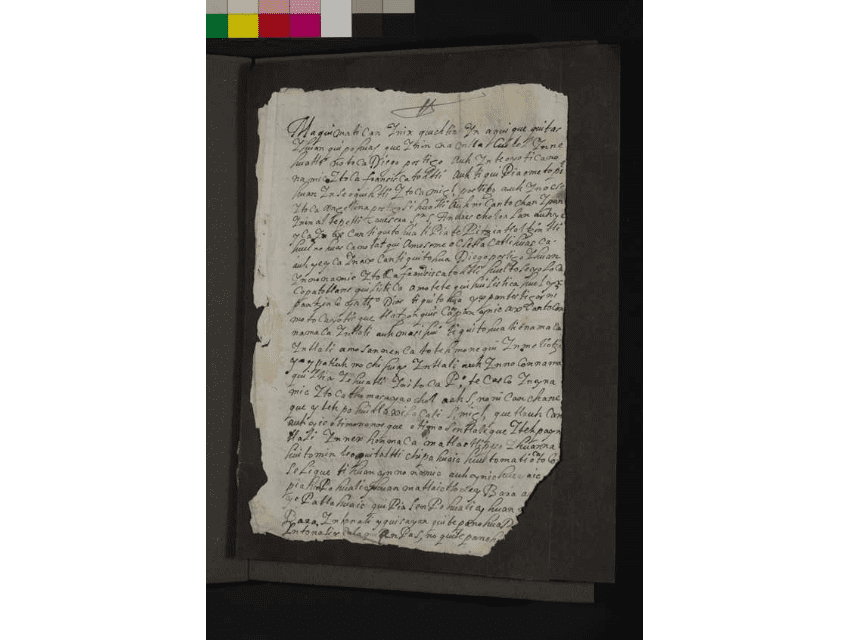
Unlocking the Colonial Archive will help historians, archaeologists, and other humanities scholars understand a range of historical processes and phenomena in New Spain, such as Indigenous dispensation of justice over time, women’s textile production across space, the relations between African and Indigenous peoples, demographic movements, and settlement processes. The project will also benefit studies about Mesoamerican pictorial manuscripts, particularly the colonial maps, in which different spatial knowledge and conceptions were applied.
Javier Pereda Campillo (Liverpool John Moores University, UK) from the Unlocking the Colonial Archive Project is going to participate in the panel “Modern Institutional Networks Visualize Early Modern Archives: The Case of the Relaciones Geográficas y Topográficas” at the Lozano Long Conference in honor of the centennial of the Nettie Lee Benson Latin American Collection. The conference, entitled “Archiving Objects of Knowledge with Latin American Perspectives,” will take place in a hybrid format on Thursday, February 24, and Friday, February 25, 2022.
Eduardo Henrique Gorobets Martins is a PhD Student at the Department of Spanish and Portuguese of the University of Texas at Austin. He received his B.A. (2014) and M.A. (2018) in History at the Universidade de São Paulo (USP). Eduardo is a researcher of Centro de Estudos Mesoamericanos e Andinos (USP) since 2015 and of LABORINDIO -Grupo de pesquisa sobre o trabalho Indígena nas Américas (USP) since 2018. His primary interests are in colonial Mexico history, with a focus in Indigenous documents and labor issues.
